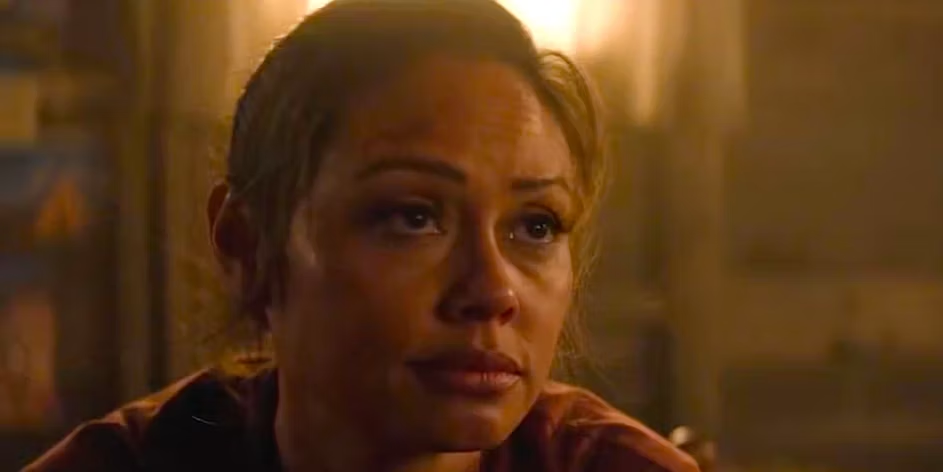In a recent interview with TV Insider, Daniela Ruah, director of NCIS: Hawai’i, delved into a pivotal twist surrounding Jane Tennant in the latest episode of the crime procedural. This episode saw Tennant injured and seeking refuge in a cabin, where she encounters a mysterious woman who inexplicably possesses intimate knowledge of the ongoing case. However, in a jolting realization, Tennant wakes up to find herself alone in the cabin, with the woman revealed to be a manifestation of her long-departed mother, frozen in time as she appeared when Tennant last saw her as a child.
Ruah provided insight into the significance of Tennant’s hallucinations, emphasizing that they served as a reflection of her inner turmoil and unresolved feelings about her past. The director explained how they meticulously crafted the scenes to blur the line between Tennant’s perception and reality, subtly hinting at the surreal nature of her experiences without giving away the twist prematurely. For instance, Tennant’s initial lack of injury in her imagined reality, contrasted with the visible wound in the actual cabin, underscored the disconnect between her perception and the truth.
Ruah elaborated on the challenge of balancing the gradual revelation of Tennant’s hallucinations with maintaining narrative coherence and audience engagement. By gradually intensifying the strangeness of the cabin scenes, they aimed to keep viewers intrigued while avoiding premature skepticism or confusion. The decision to have Tennant’s mother address the camera directly during their conversations added an additional layer of psychological depth, emphasizing the emotional resonance of Tennant’s internal dialogue.
Moreover, Ruah highlighted the thematic significance of Tennant’s imagined interaction with her mother, suggesting that it tapped into her deep-seated insecurities and unresolved questions about her familial relationships. The character’s fear of being perceived as a burden, mirrored in her mother’s apparent reluctance to engage with her, hinted at broader themes of abandonment and self-doubt. These complex dynamics added layers to Tennant’s characterization, enriching the ongoing exploration of her personal journey.
In closing, Ruah acknowledged the ongoing evolution of Tennant’s character arc and the narrative ambiguity surrounding her past. By leaving certain aspects open to interpretation, they aimed to provide narrative flexibility for future developments while delivering a compelling and emotionally resonant storyline for audiences to engage with.




